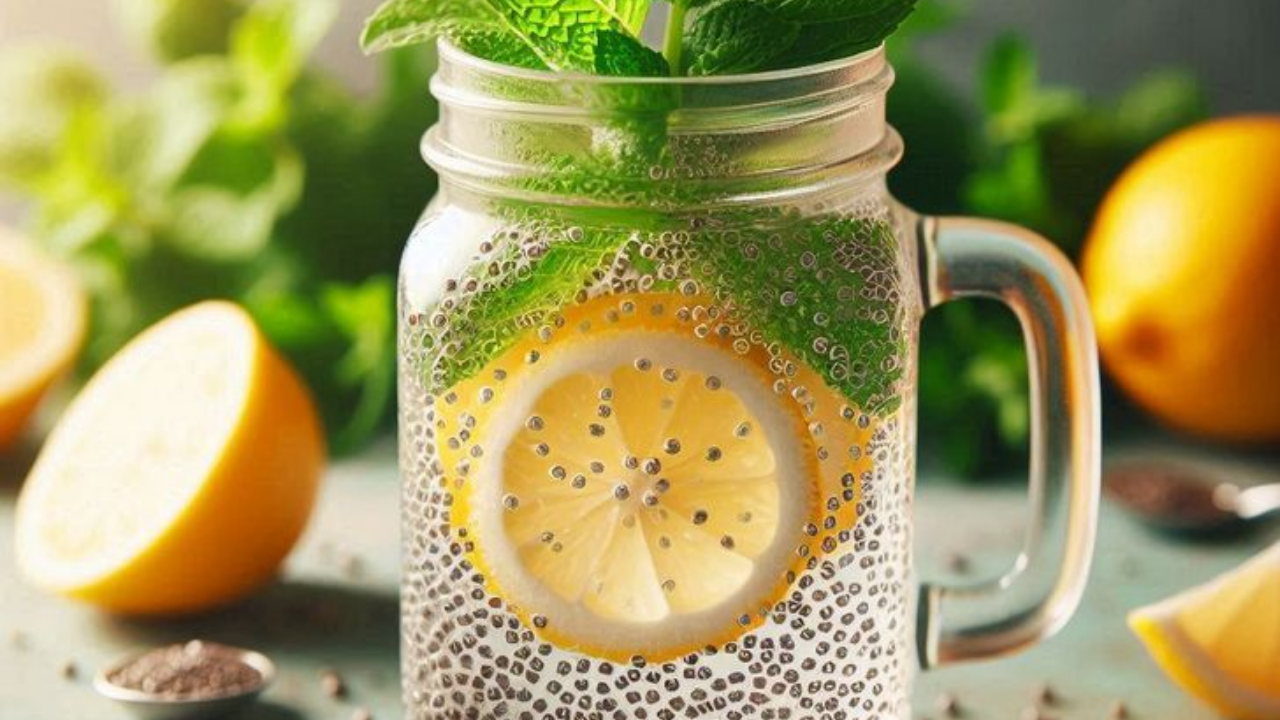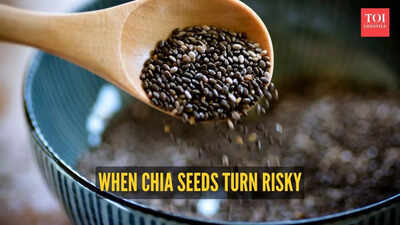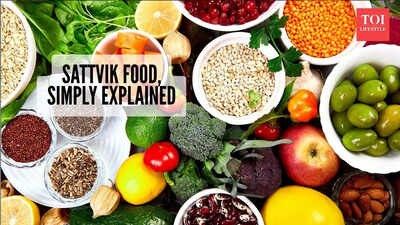Chia seeds aren’t for everyone: Doctor lists shocking side effects and who should avoid them altogether

Chia seeds are praised as a “superfood,” but as dermatologist Dr Jushya Sarin points out, they don’t suit everyone. Packed with fiber, omega-3, and minerals, these tiny seeds can also cause unexpected side effects when taken the wrong way or by the wrong people. Here’s all we need to know about who needs to be careful and why moderation is the real secret behind reaping their benefits safely.
People with gas, bloating, or gut issues
For anyone who struggles with digestion, chia seeds can make things worse before they get better. When soaked, chia seeds swell up and absorb nearly 10 times their weight in water. For sensitive stomachs, this can lead to gas, bloating, or cramping.Dr Sarin advises starting with half a teaspoon to test how your gut reacts. Those with irritable bowel syndrome (IBS) or other gut sensitivities should always soak chia thoroughly and drink enough water to prevent discomfort.
Those with low blood pressure
Chia seeds are naturally rich in alpha-linolenic acid and potassium, both known to lower blood pressure. While this is great for people with hypertension, it can be risky for those whose blood pressure already runs low.Overconsumption might leave such individuals feeling light-headed, dizzy, or unusually tired. Dr Sarin recommends they take chia in small, infrequent portions and monitor how their body responds.

People on blood thinners or aspirin
If someone is on warfarin, aspirin, or other blood-thinning medications, chia seeds may not be their best friend. These seeds are rich in omega-3 fatty acids, which also thin the blood. Too much of it can increase the risk of bleeding or bruising easily.Doctors often suggest keeping chia intake limited to no more than 1 tablespoon daily and consulting a healthcare provider if on medication.
Those with seed allergies
If there’s a known allergy to sesame, flax, or mustard seeds, chia could trigger similar reactions. Cross-reactivity is rare but possible.Early warning signs include itching, rashes, swelling, or breathing trouble after consumption. Anyone with a seed allergy should either skip chia altogether or get an allergy test before adding it to their diet.
People with kidney problems
For those dealing with kidney disease, chia’s high potassium and phosphorus content can be harmful. These minerals can build up in the blood when kidneys aren’t working efficiently, which may cause complications over time.In such cases, even a “healthy” food like chia can burden the kidneys unnecessarily. Dr Sarin advises keeping intake minimal, no more than a tablespoon soaked in water, and maintaining proper hydration.
A note on safe use
Dr Sarin emphasizes that chia seeds aren’t dangerous for everyone. For most healthy people, 1-2 tablespoons soaked in water daily is safe. The key lies in preparation and hydration. Dry chia can cause choking or digestive blockage, while soaked seeds are easier to digest and absorb.Disclaimer: This article is for informational purposes only and should not replace professional medical advice. Always consult a qualified doctor or nutritionist before making major dietary changes, especially if you have underlying health conditions or are on medication.






